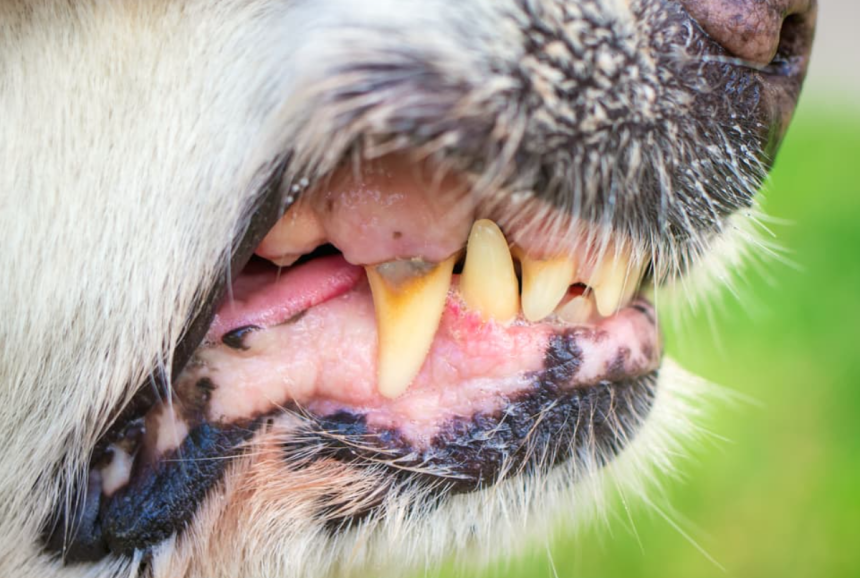Puppies are bundles of joy, and watching them grow and develop is a rewarding experience for any pet owner. One crucial aspect of a puppy’s growth is the development of their teeth.
However, sometimes, pet owners may notice discolored teeth in their puppies, leading to concern.
In this article, we will explore the reasons behind discolored teeth in puppies and when you should worry about them.
Normal Puppy Tooth Development
Before delving into puppy teeth discolored topics, it’s essential to understand the typical progression of a puppy’s tooth development.
Puppies are born with no visible teeth, and their deciduous (baby) teeth start coming in around three weeks of age. These baby teeth are usually white and sharp, designed for chewing and exploring their environment.
By six months of age, most puppies will have a full set of 28 baby teeth.
However, as puppies grow, their baby teeth will gradually be replaced by permanent teeth. The process begins at around four months, with the permanent incisors erupting first.
By six months, puppies should have a complete set of 42 permanent teeth, which will remain with them throughout their lives. These permanent teeth should also be white and free from any discoloration.
Causes of Discolored Teeth in Puppies
Here are some possible causes of discolored teeth in puppies:
- Staining: One common reason for discolored teeth in puppies is staining from their diet. Chewing on toys or objects that contain dyes or colorants, or consuming foods and treats with artificial colors, can lead to tooth staining. This type of discoloration is usually harmless and can be managed with proper dental care.
- Plaque and Tartar: Poor oral hygiene can result in the buildup of plaque and tartar on a puppy’s teeth. These substances can cause the teeth to appear yellow or brownish. Regular brushing and dental care can help prevent plaque and tartar buildup.
- Tooth Decay: Just like humans, puppies can experience tooth decay. This can occur due to a high-sugar diet, inadequate dental care, or genetic factors. Tooth decay may result in discolored spots or cavities on the teeth and requires immediate attention from a veterinarian.
- Trauma: Accidents or rough play can lead to dental injuries in puppies, including cracked or discolored teeth. Trauma to the teeth can result in discoloration and should be evaluated by a veterinarian to determine the extent of the damage and necessary treatment.
- Medications: Some medications, particularly antibiotics like tetracycline, can cause tooth discoloration if given to puppies during tooth development. It’s essential to follow your veterinarian’s advice when administering medications to your puppy.
When to Worry
Not all cases of discolored teeth in puppies warrant immediate concern. Here are some guidelines to help you determine when to worry:
- Persistent Discoloration: If you notice that your puppy’s teeth remain discolored despite improved oral hygiene and diet adjustments, it’s time to consult a veterinarian. This could be a sign of an underlying dental issue.
- Pain or Discomfort: If your puppy displays signs of pain or discomfort when eating or chewing, it may indicate dental problems. Discolored teeth accompanied by these symptoms should not be ignored.
- Cavities or Breakage: If you see visible cavities, fractures, or chipping on your puppy’s teeth, seek immediate veterinary attention. Dental issues like these can lead to infection and further complications if left untreated.
- Sudden or Severe Discoloration: If your puppy’s teeth suddenly change color drastically, especially to a dark brown or black hue, it could be a sign of a serious problem like pulp necrosis, which requires immediate veterinary care.
Discolored teeth in puppies are not uncommon, and in many cases, they can be managed with proper care and attention. However, it’s crucial to stay vigilant and address any persistent or concerning changes in your puppy’s teeth promptly.
Regular dental check-ups with your veterinarian, a balanced diet, and good oral hygiene practices can go a long way in ensuring your puppy’s teeth remain healthy and white throughout their life.














